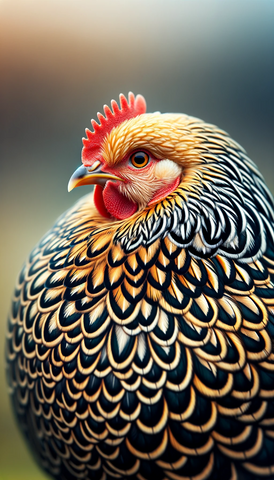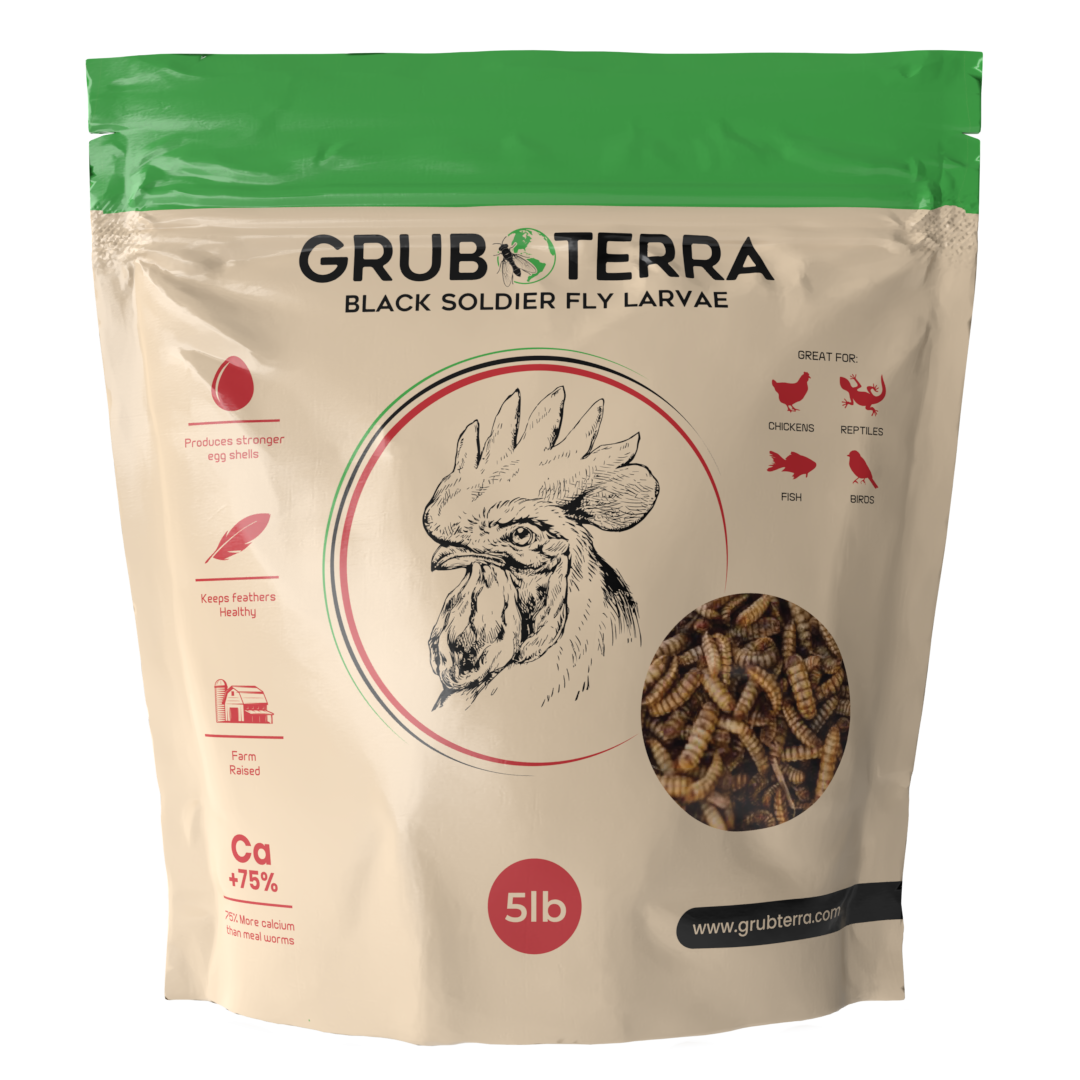Best Chickens for Eggs: Selecting the Perfect Breed
When it comes to selecting the best chickens for eggs, your choice of breed plays a crucial role. Here, we'll discuss some of the top breeds known for their exceptional egg-laying abilities and provide insights into their average egg production.
Rhode Island Red
Average Egg Production: Rhode Island Reds are renowned for their prolific egg production, churning out approximately 200 to 300 brown eggs per year. These hardy birds lay consistently and are known for their friendly disposition, making them an excellent choice for beginners. For optimal egg production, consider supplementing their diet with high-quality feed like GrubTerra's Black Soldier Fly Larvae.
Leghorn
Average Egg Production: Leghorns are champions in egg production, laying an impressive 280 to 320 large, white eggs per year. They are active and alert birds, perfect for free-range setups. Learn more about enhancing your Leghorns' diet for peak egg production on our blog.

Sussex
Average Egg Production: Sussex chickens are not only great layers of brown eggs but also have a gentle nature. They typically produce around 250 to 275 eggs annually, making them ideal for family-friendly flocks. For tips on Sussex chicken care, visit our website.

Wyandotte
Average Egg Production: With their beautifully patterned feathers, Wyandottes are a dual-purpose breed, excelling in both egg production and meat quality. You can expect them to lay approximately 200 to 250 brown eggs per year. Enhance your Wyandottes' well-being with our specially formulated feeds, available here.

Plymouth Rock
Average Egg Production: Plymouth Rocks, also known as Barred Rocks, lay brown eggs reliably and are known for their cold-hardy nature. They produce about 200 to 280 eggs annually. Dive into our news section for the latest on Plymouth Rock care and nutrition.

Creating the Perfect Environment
To ensure your hens produce the best eggs possible, you need to create a suitable living environment. Let's delve into some essential aspects of chicken care.
Coop and Run
Provide a spacious and predator-proof coop and run for your chickens. A safe and comfortable environment ensures stress-free laying. Discover coop maintenance tips on our GrubTerra blog.
Proper Nutrition
Feed your chickens a balanced diet rich in calcium and protein to support healthy egg production. High-quality layer pellets are an excellent choice. Explore the best nutritional options for your flock at GrubTerra.
Nesting Boxes
A well-designed nesting box is essential for egg-laying hens. Make sure they are clean, quiet, and comfortable for your birds. For nesting box ideas and setup tips, check out our resources.
Egg Quality and Care
The quality of the eggs your chickens produce can vary based on several factors. Let's explore how to maintain top-notch egg quality.

Collecting Eggs
Gently collect eggs daily to prevent them from getting dirty or cracked. Clean any soiled eggs promptly. For best practices on egg collection and cleaning, visit GrubTerra's blog.
Storage
Store eggs in a cool, dry place to maintain freshness. Proper storage can extend the shelf life of your eggs. Learn more about egg storage techniques on our website.
Egg Grading
Understand the grading system for eggs, which is based on size, quality, and cleanliness.
FAQs
-
How many eggs can I expect from my hens each week? On average, you can expect your hens to produce 4-7 eggs per week, depending on the breed and individual variations.
-
Do I need a rooster for my hens to lay eggs? No, hens can lay eggs without a rooster. A rooster is only necessary for fertilizing eggs for hatching.
-
How long do chickens typically lay eggs? Most chickens lay eggs consistently for 2-3 years before their egg production declines.
-
Can I feed my chickens kitchen scraps? Yes, you can feed chickens kitchen scraps, but make sure they have a balanced diet primarily consisting of poultry feed.
-
How can I encourage my chickens to lay more eggs? Ensure they have a stress-free environment, proper nutrition, and adequate daylight hours for egg production. Selecting high-producing breeds also helps.
-
What's the difference between brown and white eggs? The color of the eggshell is determined by the breed of the chicken. There is no nutritional difference between brown and white eggs.
Conclusion
Choosing the best chickens for eggs and providing them with a comfortable living environment is essential for a consistent supply of fresh, high-quality eggs. Whether you opt for Rhode Island Reds, Leghorns, Sussex, Wyandottes, or Plymouth Rocks, following proper care practices will ensure your feathered friends are happy and productive.



